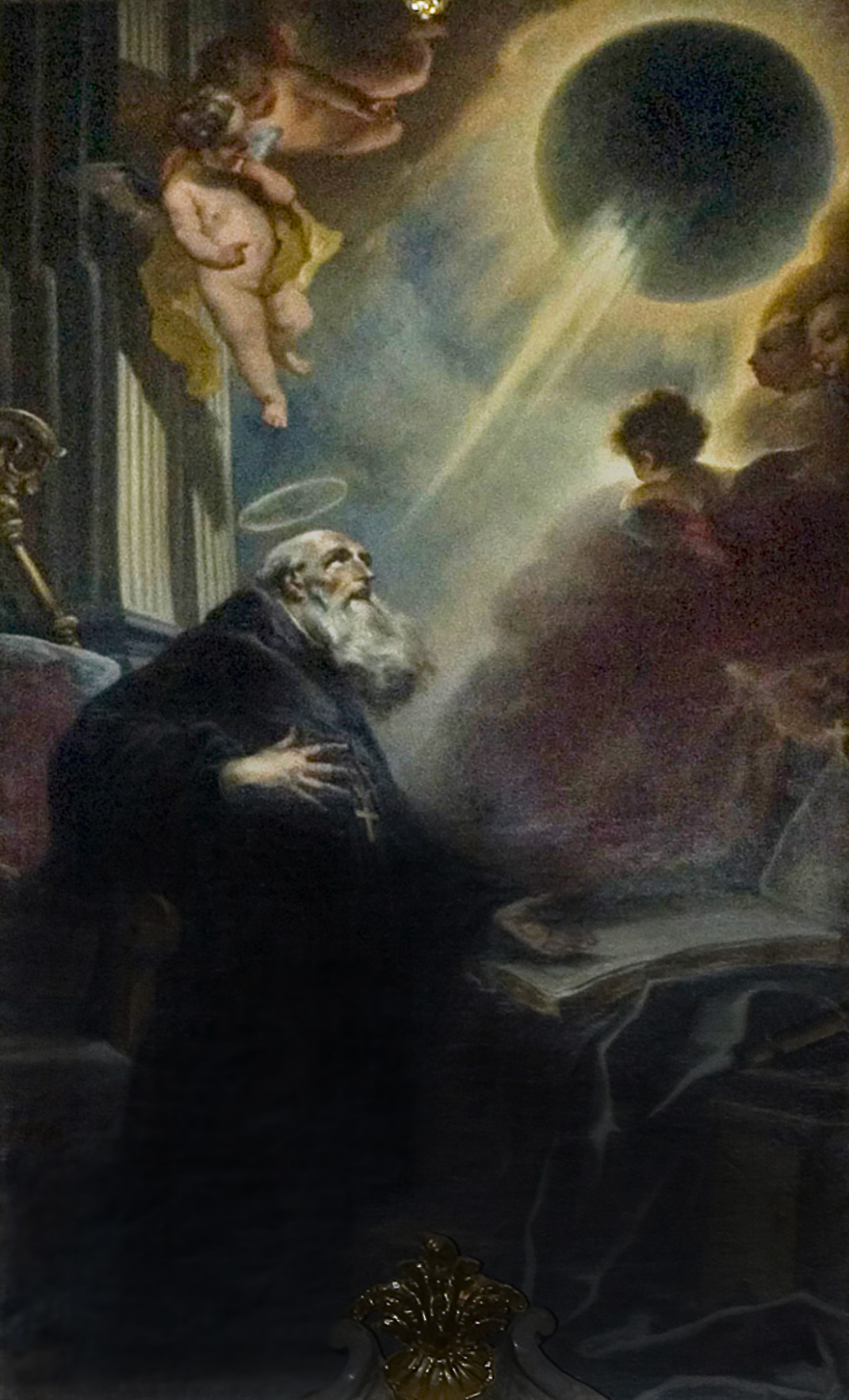Blessed Schuster’s Daily Thoughts on the Rule: Tuesday after the Fourth Sunday of Lent
Tuesday after the 4th Sunday of Lent
Station at St Laurence in Damaso
Resistance to Grace
1. The Station is at St Laurence in Damaso, where there were originally located the Archives of the Roman Church, in which Pope Damasus’ father had himself worked.
Henceforth, after the 4th Sunday of Lent, until Pentecost the Gospel pericopes as a rule are all taken from St John.
Today’s reading can be divided conveniently into three points.
In response to the Jews who marvel that Jesus would know letters without having ever studied, He responds that His doctrine comes from on high, and that He speaks in the name of His Father.
One who does enter, however, into the required dispositions of spirit does not recognise this divine character of the Gospel. Si quis voluerit voluntatem eius facere, cognoscet de doctrina. (John 7:17: ‘The one who carries out His will shall understand His doctrine.’) Saint Benedict, in the Epilogue of the Rule, solemnly affirms this inspired character of Scripture: ‘What page is there, or what divinely inspired utterance of the Old or New Testament, that does not constitute a most sure norm for human life?’ (Rule, Ch. 73)
Hence: scrutamini Scripturas [John 5:39: ‘search the Scriptures’—tr.].
***
2. ‘Moses gave you the Law, and yet no one among you observes it…Moses instituted circumcision for you (although it did not have Moses for its author, but derives from the Patriarchs) and you indeed circumcise on the sabbath day.’ (John 7:19-22)
Might Saint Benedict not be able at times to bring the same reproach against certain relaxed monasteries? ‘God gave you a Holy Rule; and still, no one among you observes it’, and it has remained, as in the times of Dante, simply ‘a waste of paper.’ [Dante, Paradiso, 22, l. 75]
When therefore you read the Holy Rule, or hear it read, do not consider it as just any book: it is God Who has given it to you: tamquam rectissima norma vitae humanae [Rule, Ch. 73: ‘as a most sure norm for human life’—tr.]
One reads that a few centuries ago, in a convent of Dominicans, when an antiphon was being chanted in honour of the Holy Founder, calling him Father and invoking his aid, Saint Dominic appeared and said to the friars: ‘You are no longer my sons, nor am I any longer your Father.’
This is what happens to Religious when they no longer observe the Rule.
***
3. The Redeemer’s debate with the Sanhedrin threatens today to end tragically. Irritated by His clear Messianic declarations and by the reproaches which He makes to their unbelief, the Jews are already scheming about how to kill Him one day or another.
These are the consequences of resistance to grace. The Israelites were chosen beforehand to obtain the very first-fruits of the Spirit of the new Messianic Kingdom; and they prefer instead to be deicides.
When a soul turns back or begins to descend, the very weight of the grace which it abuses pushes it down, until it has touched the depth of perversion. Facilis descensus Averni [the descent to the lower world is easy], as Virgil sings [Aeneid, VI, 126].
When Saint Benedict, among the instruments of good works, once again wrote Non occidere [Not to kill], there were present to his memory the priest Florentius and the monks of Vicovaro, clever handlers of poison.
Against Don Orione [Saint Luigi Orione, 1872-1940] at Messina, there was even an attempt to infect his personal objects, in order then to discredit him before the public, when he had been stained by a shameful disease! And these were people of the Church!
